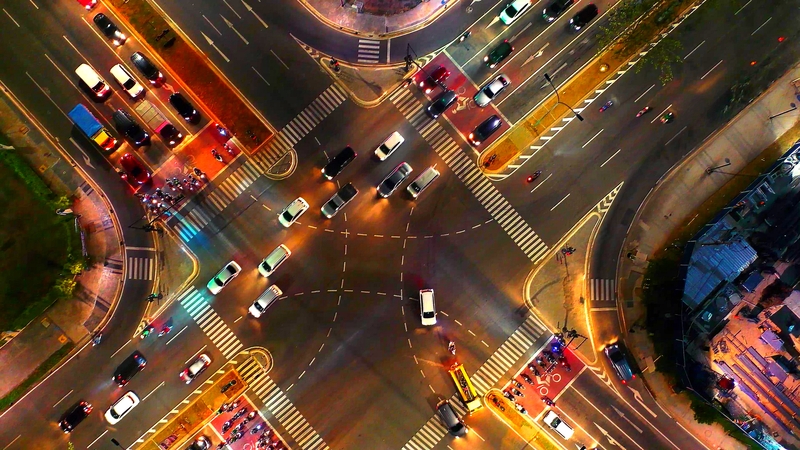
Photo: Chait Goli/Pexels
Digital solutions will help London level up post-pandemic
08 December 2021
By: Kathy Nothstine, Head of Future Cities, Nesta Challenges
Although a semblance of normality has largely been restored, by no means have the effects of the pandemic gone away. With case numbers rising and the introduction of the latest variant we continue to live in uncertain times.

London has been particularly hard hit by Covid-19 both in terms of case numbers and socio-economic impact. Lockdown restrictions and limitations on travel had a significant impact on London’s economy, with tourist spending falling by almost £11 billion (US$14.5 billion) in 2020.
There can be no doubt that the pandemic elicited an unprecedented response from the country’s science, technology, and innovation ecosystem, particularly in terms of vaccine development – with the Innovation Strategy setting out a bold vision to boost investment in R&D.
The pandemic has ushered in a new era, forcing companies to accelerate their digital adoption. The pandemic has sparked a seven-year increase in the rate at which companies developed digital or digitally enhanced offerings, indicating that businesses are realising that digital transformation is necessary to remain competitive and to meet customers’ changing needs.
Local governments are not exempt to this realisation, with the pandemic having accelerated digital progress within local government by 5.3 years, compared with the public sector average of four years.
Resilience Fund
In our case, London has extensive experience of public services implementing digital solutions, with the introduction of the congestion charge as arguably one of the first examples. Digital solutions will be critical in rebuilding London and in boosting the confidence of its residents post-pandemic. This was the sentiment underpinning the Mayor’s Resilience Fund (MRF), delivered in partnership with Nesta Challenges and funded by the London Economic Action Partnership (LEAP).
The MRF committed £1 million towards the competition’s top solutions across a variety of different challenges, tackling some of London’s most significant issues. These included obstacles for freelancers and self-employed people and finding a way to give confidence back to people who needed to use public transport.
For each challenge, innovators worked alongside ‘Resilience Partners’, such as local authorities and public agencies, who provided the relevant expertise and data needed to refine, test and implement any given solution. This partnership-driven approach enabled the creation of solutions rooted in the real needs of Londoners.
Gig economy
For instance, the Gig Economy Challenge was delivered in partnership with the Living Wage Foundation, which provided staff time, specialist knowledge and access to gig workers to facilitate the creation of a digital platform for them to analyse their income and expenses. The winner was ‘Clarity’ by Finmo, the first financial management tool that analyses an individual’s job and financial situation to determine where opportunities exist to improve their financial health. Since winning this challenge, Finmo signed an agreement with Gophr, a gig platform for couriers, which will be offering this solution to their current workforce of over 9,000.
This innovative solution is set to address the challenges faced by many gig workers, almost half of whom are deemed to be low-paid, with the pandemic exacerbating income fluctuations and reliance on high-cost credit. The data captured by this solution could enable organisations like the Living Wage Foundation to set expectations for gig economy employers to meet the cost of living for their workforce and beyond that, could even inspire systemic change in terms of pay.
Covid-safe travel
Meanwhile, the Covid-Safe Travel Challenge was delivered in partnership with the Greater London Authority and with input from Transport for London, both of which provided access to data, networks and partnerships, strategic direction and input around public health messaging. The Challenge was established to create a digital tool that would source and integrate health and travel data with up-to-date guidance and advice to support Londoners to engage in safer economic activity during periods of lessened restrictions. With a wealth of Covid-19 infection data available across London’s boroughs and business data available such as through TfL Go, the Challenge strove to fill a gap in the market for an easy and accessible way for Londoners to plan their journey in the midst of a global pandemic – and it delivered.
AUBIN by JCNTION was crowned the winner, as a door-to-door journey planner and companion app which empowers people to travel confidently when using public transport during Covid, allowing passengers to plan journeys to minimise potential exposure to infection by choosing quieter routes and via lower infection areas.
Mobilising innovation
These are just two of ten innovators who won funding because of their forward-looking and future-proofing concepts. It is exciting to see their solutions being developed, bringing real, positive change to Londoners.
With research suggesting that digital adoption will potentially add £13.4 billion to UK GDP by 2025, London will be critical in leveraging innovation to facilitate the UK’s economic recovery. Having delivered over 40 innovation challenges with partners around the world, and advised on many more, we know this method is an effective way to mobilise innovators to create needs-driven solutions, in partnership with local governments and community stakeholders. So long as the momentum around digital transformation and innovation is sustained, there is potential to change lives for the better in cities around the world.
Image: Chait Goli/Pexels








